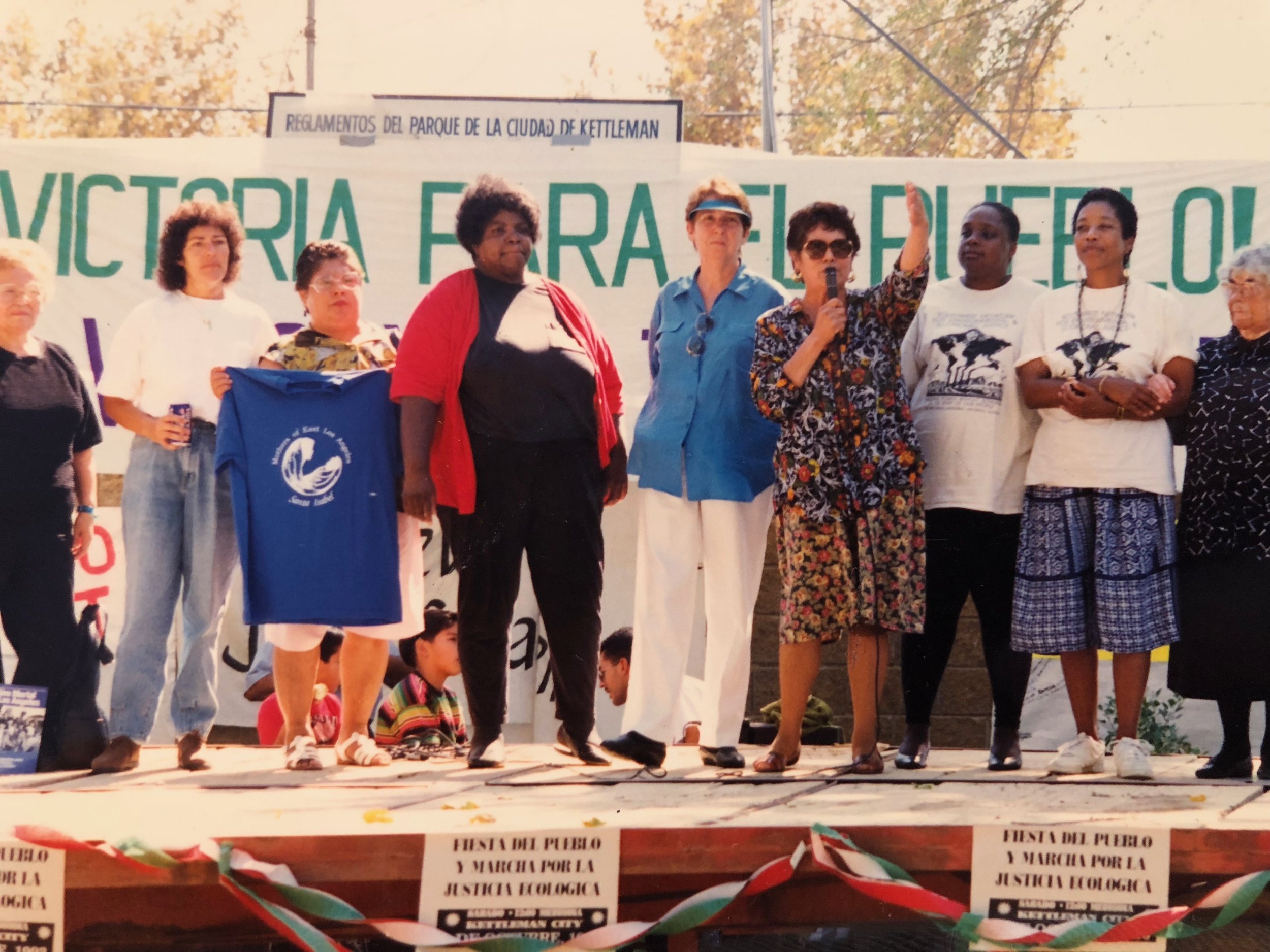Radical Motherhood Ecologies: Towards a Mapping of Social Life, Violence, and Resistance in the Southwest Borderlands
Radical Motherhood Ecologies: Towards a Mapping of Social Life, Violence and Resistance in the Southwest Borderlands examines and explores how Black, Immigrant and Indigenous Activist women and mothers in the Southwest Borderlands have fought against racialized ecological violence for over three decades. Through a deep engagement of working-class racialized women’s experiences in the rural California town of Kettleman City, San Francisco’s Southeastern community of Bayview Hunters Point and the San Ildefonso Pueblo in New Mexico, this research highlights the intricate role local environmental histories play in shaping ecologies across varying geographies, especially in relation to the ways in which motherhood becomes salient as a mobilizing force to address and disrupt structural violence in their communities. As such, racialized mothering or motherhood becomes a central tenet to understanding ecological violence, resistance, spatiality, and the environment in the United States. Utilizing a decolonial feminist methodology that includes oral histories, counter-storytelling, historiography, creative writing and archival research, my dissertation then asks: 1.) What critical insights do Black, Immigrant and Indigenous women activists in the Southwest Borderlands offer us in our understanding of racialized social life, spatiality, and the environment from the 1980s to the present? 2.) Given the central role that poor Black, Immigrant, and Indigenous women and mothers have played in the Environmental Justice Movement for over three decades, what implication does radical mothering as resistant subjectivity have in our understanding of ecology?
Chapter 1 | Kettleman City: Geographies of Disposability, Rurality, and Resistance
Chapter one discusses the political formation and larger social, economic, and environmental conditions faced by Mexican immigrant women, mothers, and their families in the rural California town of Kettleman City. Chapter one highlights the stories of Maria Salcedo, Lizbeth Canales, and Muara Alatorre, three local activist mothers who gave birth to children born with birth defects as well as played key roles in the fight against Chemical Waste Management, Inc. to consider how they work against, navigate, and resist gendered racialization, xenophobia, and anti-Mexican violence. It further reveals the ways rural Central California, through the joining of carceral, landfill, and agricultural infrastructures, create a geography of disposability – spaces of literal and social wastelands.
Chapter 2 | Bayview Hunters Point: Black women and mothers, Spacemaking and the Politics of Neoliberal San Francisco
Chapter two examines the historical legacies of Black women’s organizing efforts against the Bayview Shipyard, Pacific Gas and Electric Company (PG&E), and Lennar Corporation in San Francisco’s Bayview Hunters Point. With over four generations of local Black women and mother organizing efforts, this chapter centers the work of Marie Harrison and Arieann Harrison in their struggle against environmental degradation rooted in antiblackness. It considers the way the national imaginary of San Francisco as a free, progressive, and modern city was built on a unique hierarchal system of racialization that functions to obfuscate the social, political, and ecological violences experienced by Black and other racialized people.
Chapter 3 | San Ildefonso Pueblo: Nuclear Power, Settler Colonialism, and the Radical Politics of Healing
Chapter three examines the social, political, and economic formations of settler colonialism, nuclear power, and war through a detailed history of the tribal community of San Ildefonso Pueblo. Focusing on two generations of Indigenous women within the inter-tribal grassroots organization Tewa Women United—the work of Kathy ‘Wan Povi’ Sanchez—this chapter examined the ways indigenous women and mothers in the San Ildefonso Pueblo have resisted settler colonial violence in New Mexico. I reveal how generations of indigenous women and mothers, against ongoing acts of nuclear development, testing, and warfare, fought, created, and reimagined space, place, and the environment through ancestral healing work.






